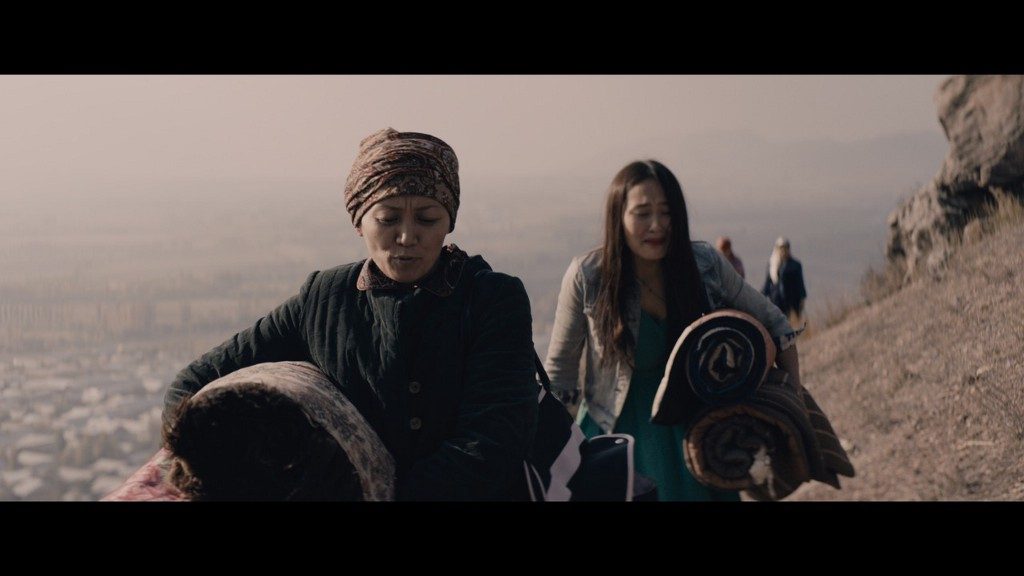Elizaveta Stishova is a Russian writer and director. Her previous short films include “Arta,” “The Hen,” “Watering,” and “The Seagull.” In 2014, Stishova participated in Berlinale Talents. “Suleiman Mountain” is her feature film debut.
“Suleiman Mountain” will premiere at the 2017 Toronto International Film Festival on September 11.
W&H: Describe the film for us in your own words.
ES: It’s a big fight for love — nobody wins and nobody loses. It’s life.
W&H: What drew you to this story?
ES: I spent a lot of time in Kyrgyzstan, where I watched and learned people. I always wanted to do something like “Suleiman Mountain” with Kyrgyzstani actors, because the people and landscapes make story a little bit unreal sort like a fairy tale with drama inside.
W&H: What do you want people to think about when they are leaving the theater?
ES: I want them to think about their friends and relatives, about people like main hero in the story, Karabas. I think we meet those people a lot, and we need to give them a chance.
W&H: What was the biggest challenge in making the film?
ES: Money. It was very hard to struggle every day without knowing if it will be possible to shoot until the end. Other than that, we had no other problems. I had a perfect group. We worked as a team, and I’m happy with that.
W&H: How did you get your film funded? Share some insights into how you got the film made.
ES: It’s better to ask our producer about that, but it was incredibly hard. Our project doesn’t fit in any specific funds or grants. We couldn’t get any European money, because I’m a Russian director and filming took place in Kyrgyzstan. The Russian Ministry of Culture twice refused to give us funds. That’s why our producer Yelena Yatsura gathered together a huge amount of producers and co-producers.
W&H: What does it mean for you to have your film play at the Toronto
International Film Festival?
ES: I’m very happy. I’m interested to see how Canadians are going to view it and what they’re going to say.
W&H: What’s the best and worst advice you’ve received?
ES: I receive a lot of advice, but I usually don’t follow it.
W&H: Name your favorite woman-directed film and why.
ES: One of my favorite female directors was Dinara Asanova — I liked her a lot. She was born in Kyrgyzstan, but had worked all her life in Leningrad. I feel somehow connected to her films.
W&H: There have been significant conversations over the last couple of years about increasing the amount of opportunities for women directors yet the numbers have not increased. Are you optimistic about the possibilities for change? Share any thoughts you might have on this topic.
ES: In Russia, it’s hard to find male directors because there are just so many women right now — and the number is only increasing from year to year.






